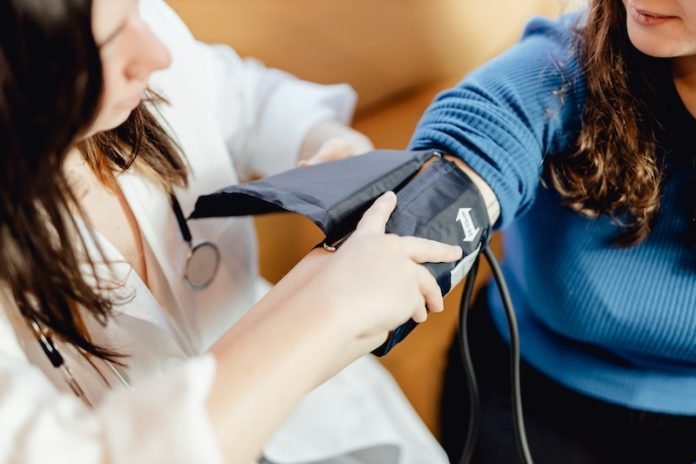
Blood pressure checks are a routine part of our health care.
You’ve probably had one: a nurse wraps a cuff around your arm, pumps it full of air until it’s snug, and then releases the air while listening with a special instrument.
But what if this common method isn’t as precise as we’ve been led to believe? New research is shedding light on potential shortcomings, especially for people with mid-level blood pressure.
How the Study Got Started
Researchers reviewed studies dating back to the 1950s and analyzed data from over 2,500 people. They compared the results from the usual arm cuff method to a more exact technique called “invasive blood pressure measurement.”
This second method gives a more accurate reading by actually measuring the pressure inside your body’s arteries. Why does this matter? Well, it turns out that the arm cuff might not be telling the whole story.
Why Accurate Readings Matter
The reason this is important is that your organs—like your heart and brain—feel the pressure that’s actually inside your arteries.
That pressure can be different from what the arm cuff shows. And if doctors get that number wrong, they might make poor decisions about how to treat you.
For example, you might miss out on medication that could help, or you might get medication you don’t really need.
Who’s Most Affected?
The arm cuff method seems to work well for people at the far ends of the blood pressure scale. For those with very low or very high readings, it’s usually accurate.
But the researchers found that the method was not so reliable for those with mid-range blood pressure numbers.
Specifically, people with top numbers between 120 and 159, and bottom numbers between 80 and 99, were only getting accurate readings about half the time.
That’s not good enough when we’re talking about a health factor as crucial as blood pressure.
What’s Next?
Despite these findings, there’s no need to panic. Medications for high blood pressure have proven to be effective in preventing serious health issues like heart attacks and strokes.
The arm cuff test is still a useful tool; it’s just that we may need to look for more accurate ways to measure blood pressure to help even more people.
One thing you can do right now is to stay informed. Keep up with new research and talk to your healthcare provider about other ways to maintain a healthy blood pressure, like changing your diet or getting more exercise.
The more we learn, the better we’ll get at detecting and managing this critical aspect of health.
This study isn’t the end of the story; it’s just one chapter in the ongoing effort to understand blood pressure better.
So keep an eye out for new studies and stay proactive about your health. After all, knowledge is the first step to better well-being.
If you care about blood pressure, please read studies about unhealthy habits that could increase high blood pressure risk, and eating eggs in a healthy diet may reduce risks of diabetes, high blood pressure.
For more information about blood pressure, please see recent studies that early time-restricted eating could help improve blood pressure, and results showing 12 foods that lower blood pressure.
Follow us on Twitter for more articles about this topic.
Copyright © 2023 Knowridge Science Report. All rights reserved.



